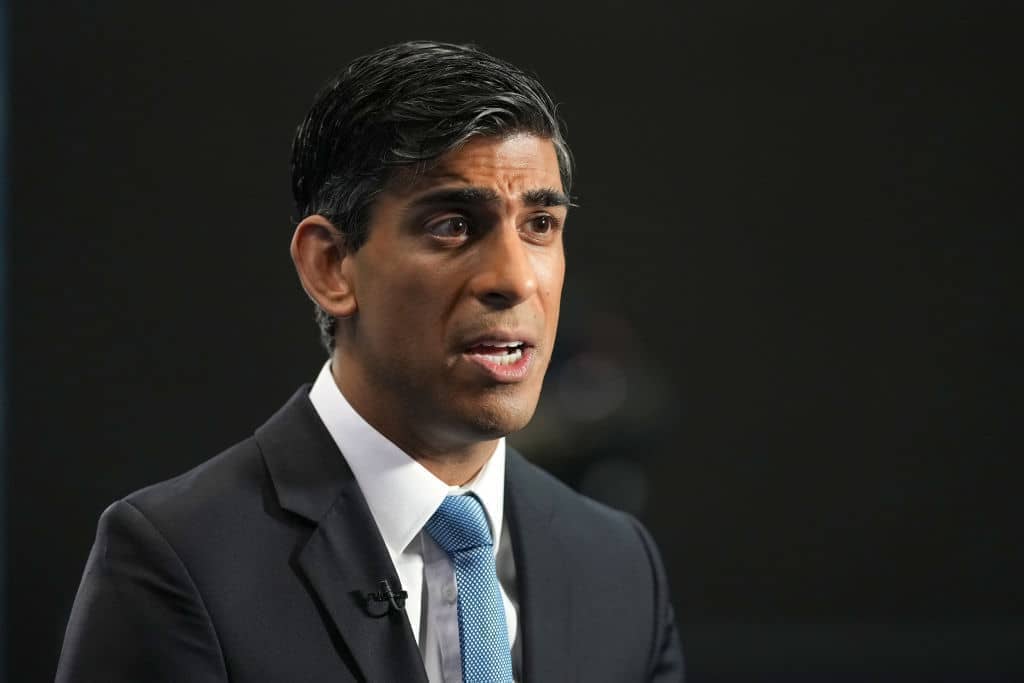After growing calls from retail and hospitality for financial support to weather the ‘unofficial lockdown’ plaguing these industries, the Treasury today has responded. After a week of conversations with business leaders, Chancellor Rishi Sunak has announced a £1 billion support package this afternoon, which includes one-off grants worth up to £6,000 for hospitality and leisure businesses in England, as well as government cover of Statutory Sick Pay for workers off with Covid-related illness, which can be claimed by small and medium-sized firms.
Sunak’s decision to deliver a support scheme isn’t all that surprising, given the Chancellor’s generous track record with these packages in the past. While businesses legally remain open, Boris Johnson’s repeated push for the public to modify their behaviour (echoed by other members of the Cabinet and government officials across the airwaves), has seen a fall in mobility trends (especially in areas like London, where Omicron is especially prevalent) while restaurant reservations also show a notable drop-off in activity.
This guidance was on display yet again in a video published on the Prime Minister’s Twitter feed this evening, where he confirmed Christmas festivities could go ahead as planned, but urged ‘everyone to exercise caution, to keep protecting yourselves and your loved ones, especially the vulnerable.’
It’s no small chunk of change that the Chancellor has pledged, and so far industry representatives seem satisfied. Kate Nicholls, CEO of UK Hospitality, has welcomed the measures, saying the businesses she represented will be ‘extremely grateful’ for the support. Mike Cherry, the National Chairman of the Federation of Small Businesses has also praised the ‘positive measures’ which he says ‘will help alleviate the intense pressures that small firms are currently under.’
So support has been offered, once again. But this time round, there are more implications than usual for Britain’s economy.
For nearly two years now, Sunak has been gently reminding the Prime Minister that restrictions knock the economy for six: directly resulting in hits on people’s livelihoods and prosperity. They affect employers who see their companies fold and the public finances, which have to account for billions of pounds to fund the support schemes.
But there is another cost too, at the forefront of the Chancellor’s mind. As I say in today’s Telegraph, the prospect of more restrictions makes Sunak’s personal pledge to try and reduce the tax burden harder to achieve.
In his last Budget, Sunak gave himself roughly £17.5 billion worth of ‘fiscal headroom’ against his own fiscal rules: the main purpose of this was to hedge against an inflation and interest rate rise, which could see the cost of servicing the debt spiral upwards (a long-time concern of the Chancellor’s that is increasingly proving correct).
If such a storm could be weathered, then some of the headroom could be used to cut taxes. But the Prime Minister is well aware of this fiscal breathing space, and with the prospect of more restrictions, it’s increasingly vulnerable to a raid. ‘The money (Sunak) set aside is being eaten up already,’ one source close to government tells me. ‘Inflation’s going up, the Prime Minister wants more money to support Covid restrictions.’ Interest rates, now, are on the rise too.
None of this means Sunak won’t prioritise immediate support, but the trade-offs of official (and unofficial) restrictions are becoming impossible to ignore. With the tax burden brought up to a 71-year high after the October Budget, a meaningful tax break for millions is a major priority for Sunak too. But the longer and harsher restrictions on normal economic activity endure, the further plans for tax cuts drift away.







Comments